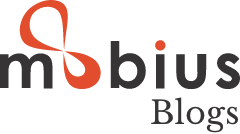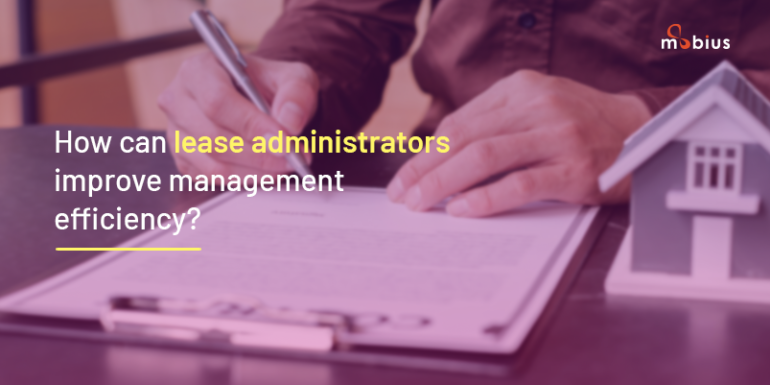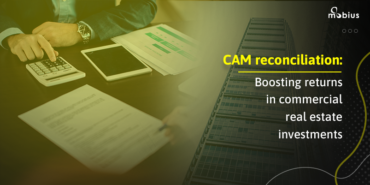Lease administration is crucial for every real estate business to manage the lease documents efficiently. Companies often handle large volumes of lease agreements, making it challenging for them to streamline and manage their workflows.
Given the multiple types of leases, complexities, and the abundance of data available in a lease agreement, lease administration has become a mundane, error-prone, and time-consuming task.
What is lease administration?
Lease agreements vary from property to property. Hence, each lease document needs careful administration.
Generally, the lease administration responsibilities are divided among departments or handled by a single experienced administrator responsible for managing the entire lease contracts.
The entire process makes lease administration utterly complex for real estate businesses demanding dedicated focus and resources.
What makes lease administration essential for real estate businesses?
A lease document contains legal norms, regulations, and mutual agreements between the parties when renting a property. So what is the significant role of lease administration in this mutual agreement system?
Lease administration makes sure both parties function according to the agreement, content to mutual benefits, and the property assets are managed as per the agreement.
Additionally, the complete lease administration process deals with reporting, managing rents, accounting, and other administrative back-office activities.
Here are some of the administrative areas that strongly demand lease management support.
- Demand for professional support in keeping track of renewals, calculating operating expenses, and aligning real estate portfolio with business lease strategy.
- Professional inspection on asset management, finding opportunities in the market, and keeping constant checks on payments and liabilities.
- Need for expertise in overcoming challenges associated with compliance, negotiations, and complex lease abstraction followed by detailed reviewing.
What are the challenges in lease administration?
The more extensive portfolio, the more complicated it becomes to manage leases and their data for any real estate business.
Challenges faced during lease administration are as follows:
- Lack of skillful resources
- Shortage of time
- Complexity in lease portfolio management
- Transparency in communication and tasks
- Compliance to lease accounting standards
- Lease negotiations
- Accessing data efficiently
Therefore, having a dedicated team or an entire department for lease administration can effectively solve the issue.
What are the advantages of lease administration?
The right lease administration services provider can help streamline everyday tasks for the real estate businesses operating across multiple locations.
Strengthening your team by combing through the lease portfolio can result in favorable outcomes and better insights.
Some of the advantages obtained from lease administration are as follows:
- Convenient access to actionable insights
- Reduced operating costs
- Exposure to industry expertise
- Better visibility into your portfolio
- Quick business decisions
Crucial roles of lease administrators
A lease administrator is a resourceful expert who has good management skills and oversees all aspects of the lease management process.
But, even for an experienced administrator, there are some crucial roles in lease administration. Here are some of the typical responsibilities of a lease administrator:
- Create lease documents and draft terms and conditions, obligations, negotiations, amendments, payment methods, critical dates, and contact information about parties.
- Manage several properties and assets for a real estate company and perform more general administrative day-to-day tasks.
- Perform paperwork before the leases are due for renewals or terminations, similar to creating a new lease document.
- Deliver summarized accounting reports to the financial team, management team, auditors, and forecasting team to analyze the occupancy cost.
- Keep tabs on rent payments, operating expenses, and penalty charges per the lease agreement. Escalate the process if lessees do not make payments on time.
Ways to improve your lease administration efficiency
Adopt a comprehensive process
It is usual for any business to think of revamping their existing management process that doesn’t yield any profitable outcomes. Likewise, if you find your administrative process unproductive, especially when it comes to financial accounting, identify the gaps and areas that need improvisation.
Ensuring your financial reporting team has access to accurate and up-to-date lease information is essential. Having a comprehensive and consolidating process can minimize the burden of the accounting team to comply with FASB ASC 842 regulations, streamline the processing of new leases, and better manage lease data for reconciliation and lease terminations.
Centralize lease data and management tools
One of the easiest ways to effective lease administration is to house all the data in a centralized repository. The team members can easily access data anytime, anywhere, thus saving time, minimizing errors, and improving productivity.
Retrieving data from multiple systems can lead to data disparity and increase the chance of error while reporting. In other words, the processing of data from separate systems further creates challenges in coordinating lease management workflows.
Therefore centralizing the lease data and reports using proper management tools can help real estate businesses to make time-sensitive strategic decisions, simplify auditing and eliminate the data integrity issues.
Pay attention to market data
It is crucial for the real estate businesses dealing with commercial property leasing to pay close attention to the leasing hot spots and changing market trends.
Businesses unaware of the market trends or property value changes are likely to lose the chance of potential growth. Keeping tabs on current market data can help make better decisions and provide futuristic insights into market opportunities.
Therefore, it is wise for commercial real estate firms to invest in market research and trends to gain complete visibility into the leasing market and make strategic decisions.
Establish better control
One of the key challenges any lease administration team will face is establishing a standard procedure for managing the entire commercial property leases. Organizations must follow set procedures at every stage of the lease life cycle, from lease documentation to terminations.
Adding lease data to the balance sheet increases the complexity of lease accounting. Hence, expert governance is required on the lease maintenance and acquisitions team.
The situation demands internal monitoring and validation to ensure procedures and policies are correctly applied and followed at every stage of the lease process as an approval system for accurate reporting and market forecasting.
Conclusion
Effective lease administration can benefit real estate businesses or organizations in multiple ways. With the support of a dedicated lease management team or software, organizations can examine the opportunities and apply better management practices for greater compliance.
Mobius lease administration services can help identify your backlogs and improve the efficiency of your lease management process.






